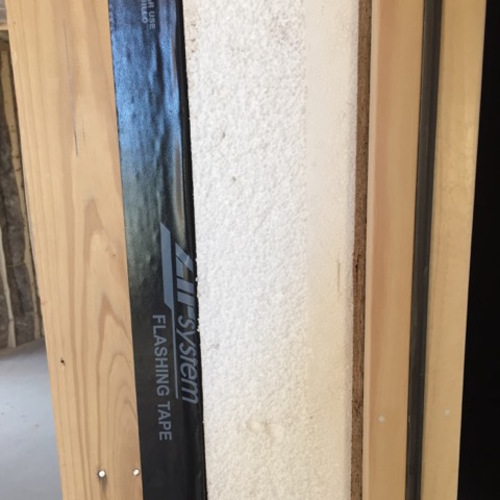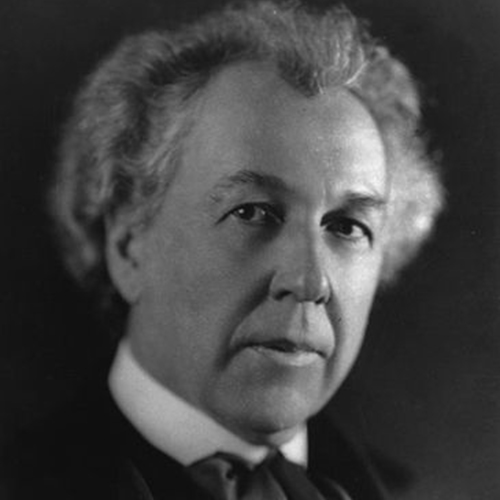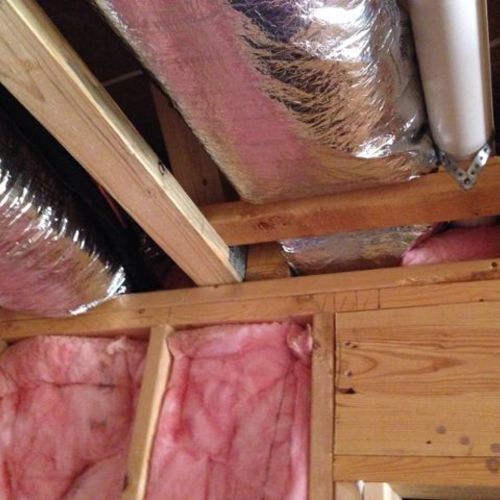
When I wrote about the debate over the terms “building envelope” vs. “building enclosure” recently, I favored the former but overall felt agnostic on whether we should choose one over the other. I didn’t think I’d change my mind. After reading the many comments from readers here in the Energy Vanguard Blog and in the two LinkedIn groups where I posted the article as well, I have indeed decided that we should go with one of the two terms and abandon the other.
Although I’ve framed this debate as being between only the two terms I mentioned above, some of the commenters suggested other terms as well: building fabric, building shell, and building perimeter. Some also proposed a compromise approach using a combination word: envelosure or enclolope. Another contingent said it doesn’t really matter what you call it as long as the meaning is clear to all parties.
Language matters
Here’s why I think it does matter, though. Building science is a young science, crafting its own identity only in the 20th century. In contrast, physics has been around for thousands of years, and a lot of the material students learn in introductory physics classes is hundreds of years old. The battles over the fundamental terms is long over in that most fundamental of the sciences but still raging in one of the newest, building science.
It’s important for experts in a field to agree on the terminology for ease and clarity of communication. Although the majority of people see “speed” and “velocity” as synonyms, for example, every physicist knows there’s an important distinction (velocity includes the direction) and uses the correct term when speaking about motion. “Envelope” and “enclosure” don’t have different meanings (yet), but it’s still important to choose one to avoid confusion.
Max Planck, the physicist who first recognized the quantum nature of radiation and whose portrait is shown above, once wrote: “A new scientific truth does not triumph by convincing its opponents and making them see the light, but rather its opponents eventually die, and a new generation grows up that is familiar with it.”
This may not be about a scientific truth, but those who write the building science textbooks and teach the building science courses seem to have made their choice already. Their term is “building enclosure.” As the field develops, more and more people will be exposed first to that term, and those who prefer “building envelope” or other terms will die out.
Why I changed my mind
Well, OK, that may not be exactly how it plays out, but I do think “building enclosure” is the better term to use. I’ve resisted it up till now because I was more comfortable with “building envelope” and because I wanted a better reason than the quip given by Joseph Lstiburek (“Envelopes are for Fedex; enclosures are for engineers”).
Here’s what’s changed my mind:
- It’s confusing to have multiple terms in use for the same concept, especially one as fundamental as the boundary between conditioned space and the various types of unconditioned space.
- “Building enclosure” is already taking over the building science programs.
- I now believe “enclosure” is a better word for this concept than is “envelope.”
Precision of language matters. The building enclosure is one of the most fundamental concepts in building science, and it does make sense to use a single term term to describe it. I’m now a convert to “building enclosure” and will use it exclusively.
* This statement contains an ironic twist because Planck later refused to accept the wave mechanics of Bohr, Heisenberg, and Pauli and became one of those old guys who couldn’t see the light, thus proving his statement correct.
Allison Bailes of Decatur, Georgia, is an energy consultant, RESNET-certified trainer, and the author of the Energy Vanguard blog. You can follow him on Twitter at @EnergyVanguard.
Weekly Newsletter
Get building science and energy efficiency advice, plus special offers, in your inbox.















18 Comments
There's nothing wrong with “building envelope”
Allison,
I usually agree with you, but not this time.
First of all, the attempt to replace the term “building envelope” with “building enclosure” is a solution in search of a problem. The term “building envelope” has never caused confusion, because there is no ambiguity to the term. (A far better battle: wiping out “solar panel,” a term that is genuinely ambiguous.)
Eric Burnett, the director of the Pennsylvania Housing Research Center, first charged into battle to fight “building envelope” at the August 2003 Building Science Symposium in Westford, Massachusetts. Burnett said, “The term ‘envelope’ does not imply the inclusion of the below-grade enclosure. It comes from curtain-wall construction, and it connotes something thin.”
As I wrote in my report on Burnett's proposal (in the October 2003 issue of Energy Design Update), “However, the word ‘enclosure’ is no more likely than ‘envelope’ to evoke the inclusion of a building’s sub-grade shell. Among the dictionary meanings of ‘envelope’ are ‘the bag that contains the gas in a dirigible or balloon’ and ‘any enclosing membrane, skin, shell, etc.’ These definitions are not far off the mark in the context under discussion. [On the other hand,] the definitions of ‘enclosure,’ a word with agricultural origins, include ‘something that encloses, as a fence, wall, etc.’ The image evoked by ‘enclosure’ -- a fenced pasture -- is more two-dimensional than the one conjured by ‘envelope,’ especially in the special sense used by balloonists.”
Although I have cited evidence that “envelope” connotes a three-dimensional shell, while “enclosure” connotes a two-dimensional fence, others argue that the two words are, in fact, synonyms -- which would render Burnett's battle meaningless. The oldest definition for “enclosure” cited in my Shorter Oxford English Dictionary is the following one from 1556: “That which encloses, as a fence, barrier, wall, envelope.” They've been synonyms for 450 years!
Finally, it should be noted that the term “building envelope” is defined under Federal law. The official U.S. government definition of the term can be found in the Code of Federal Regulations (10 CFR 434.201): “Building envelope: the elements of a building that enclose conditioned spaces through which thermal energy may be transferred to or from the exterior or to or from unconditioned spaces.”
And as we all know from our discussions of “R-value,” once a term is defined by the U.S. government -- and once the definition becomes law -- it is extremely difficult to change.
Response to Martin Holladay
You and I have discussed this before, Martin, and I used to be on the side of 'building envelope.' Yes, I do agree that both terms are perfectly acceptable. Your most powerful argument is that the federal government has codified 'building envelope.' I believe, however, that the term 'building enclosure' will win out with the people who really do building science. It's taken root at Building Science Corporation, IBACOS, and building science academic programs.
As Niels Bohr, another famous physicist, said, "Prediction is very difficult, especially about the future." Despite that difficulty, I think 'building enclosure' will be the winner.
The most useless blog though
The most useless blog though involving two of GBA's best however...
Anyway, enjoy your turkeys and tofu kids.
Going With Envelope
Building enclosure could refer to the general utility of a building; as opposed to the just the skin-like attribute of a building. The term “building enclosure” could refer to the attribute of the skin, but it could also refer to the action or performance of the building; that is, to enclose.
In other words, the term “enclosure” is to some extent synonymous with the term “building.” Therefore, the term “building enclosure” might suggest a reference to the entire building rather than just the building skin.
The term “envelope” has a more precise meaning of a skin. True, it does have a linkage with the post office, but at least that is completely divorced from architecture. So, I conclude that the term “building envelope” is much more naturally clear than the term “building enclosure.”
Furthermore, the general public is familiar enough with the term envelope as a skin that they immediately comprehend the precise meaning of “building envelope.” I believe that the general perception of the term “building enclosure” would be much less clear. For many people the term would not just naturally designate just the building skin that separates the interior from the outdoors.
The term ”envelope” when linked with “building” makes a person stop and think just long enough to make the connection that leads to the precise intended meaning.
So, Planck argued that terms
So, Planck argued that terms aren't constant? I like that.
We must have boundries
So when we argue between building envelope and building enclosure are we talking about the thermal boundary, the pressure boundary, or the two together?
Response to Chaz Steffen
Chaz,
There's no single answer to your question. Here's my answer: we are talking about the air barrier and the thermal barrier, which should be contiguous in a well designed building.
I prefer "air barrier" to "pressure boundary." But as long as a term is clear and unambiguous, I don't object to it. So anyone who prefers "pressure boundary" can use that term if they want.
new term
I propose a new term. The 'Encloshell'. with the 'sh being sounded as the 'Z' phoneme.
Sein und Zeit (with apologies to that OTHER Martin :-) )
The notion that the difference in terminology between "enclosure" and "envelope" is even remotely comparable to the differences between quantum mechanics and classical mechanics or relativity is a bit ridiculous.
The former is a semantic issue bordering on "... a distinction without a difference...", whereas the latter is a fairly sharp contrast with our human scale perceptions about the continuity of space, time, and being.
There is no new scientific truth being illuminated in relabeling what had been widely if loosely referred to as "building envelope" as "building enclosure", which is similarly broad in definition. Language is a cultural contract- terms mean what the users (both speaker/writers and listeners/reader) think they mean. Without a sufficiently clearer definition or distinction it's a case of same shi--nola, different day, Dasein.
Response to Dana Dorsett
You are, of course, correct that the enclosure/envelope discussion is not equivalent to the fundamental shift that quantum mechanics wrought in the world of physics. I learned a little bit of that subject when I was in school and am familiar with the full meaning and context of Planck's remark. I probably should have stated overtly in my article that I was merely using his quote to say that I think 'enclosure' will win out when the people who promote 'envelope' fade away. I don't think anyone will be confused because I didn't, however.
It's interesting how many people here, in the LinkedIn discussions, and in the Energy Vanguard Blog comments have stated they think this is meaningless mental masturbation. Obviously, I disagree. I think it's important, and from my vantage point, it seems that the momentum is toward 'enclosure.' The reason I like that one better is that it's the term of choice for most of the people who understand the subtleties of control layers. I think Kelly M., a commenter in the Energy Vanguard Blog, put it best:
Response to Allison Bailes and Kelly M.
Allison and Kelly,
The example doesn't ring true. While "envelope" and "enclosure" are synonyms, "cement" and "concrete" are not.
When your boss says, "Fill this bucket with cement" on Tuesday, and "Fill this bucket with concrete" on Wednesday, he's not saying the same thing.
Response to Martin Holladay
Martin, the point is not whether or not the pairs of words are synonyms. The point Kelly was making is that, in general, people who use the word 'envelope' do not have the same depth of understanding as those who use 'enclosure.' As Kelly points out, though, it's not 100% valid because there are plenty of people, such as yourself, who do use 'envelope' and understand the subtleties extremely well. It's just an indicator.
Not to flog a dead horse, but...
Allison,
Kelly may choose to make presumptions about people based on their use of the word "enclosure" if he or she wishes, but here's my point: the difference between "cement" and "concrete" is a difference that matters. But when it comes to enclosure and envelope...
In other words, those in search of a shibboleth should keep searching.
confused
Thanks guys now I am confused.
I call myself a "Building Envelope Specialist" and now it seems as if Allison wants me to change it to "building enclosure", not quite the same ring to it and I have to change my business cards
Mark Parlee
The Building Consultant
building envelope consultant specializing in
moisture intrusion & construction defects
EDI certified EIFS inspector
Certified Level One Thermographer
“Real Solutions for Real Problems”
http://www.thebuildingconsultant.com
The Choice of Either Term As An Indicator of Knowledge
Allison,
Regarding your comment:
"The point Kelly was making is that, in general, people who use the word 'envelope' do not have the same depth of understanding as those who use 'enclosure."
I do not believe there is any basis to make that assumption whatsoever.
Are you a 'big-ender' or a 'little-ender'?
Jonathan Swift would have had fun with this one.
Roots
Unless the newer coinage actually illuminates or clarifies, it's really just a re-naming. The root of "envelope" has indentical meaning that of "enclose".
en·vel·op (n-vlp)
tr.v. en·vel·oped, en·vel·op·ing, en·vel·ops
1. To enclose or encase completely with or as if with a covering: "Accompanying the darkness, a stillness envelops the city" (Curtis Wilkie).
2. To attack (an enemy's flank).
The notion that use of one term vs. the other can be an indicator of how well versed the user is on the topics is a bit of self-deception (self-delusion?). Choosing to use of "building enclosure" rather than "building envelope" may or may not indicate how recently (or even whether) the user had been schooled on the subject, or whether they have any facility with the basics. Examples are easily found of both idiots & geniuses making use of either term- as a gauge of the competence of the speaker it's a pretty lousy gauge, an affectation more than a thing of substance.
Dana is "the man" , I second
Dana is "the man" , I second and third his thoughts and postings.
What a waste of brain power this subject is. Alison, never again. Blog usefully as you are capable of. Very entertaining though. :-)
Log in or create an account to post a comment.
Sign up Log in